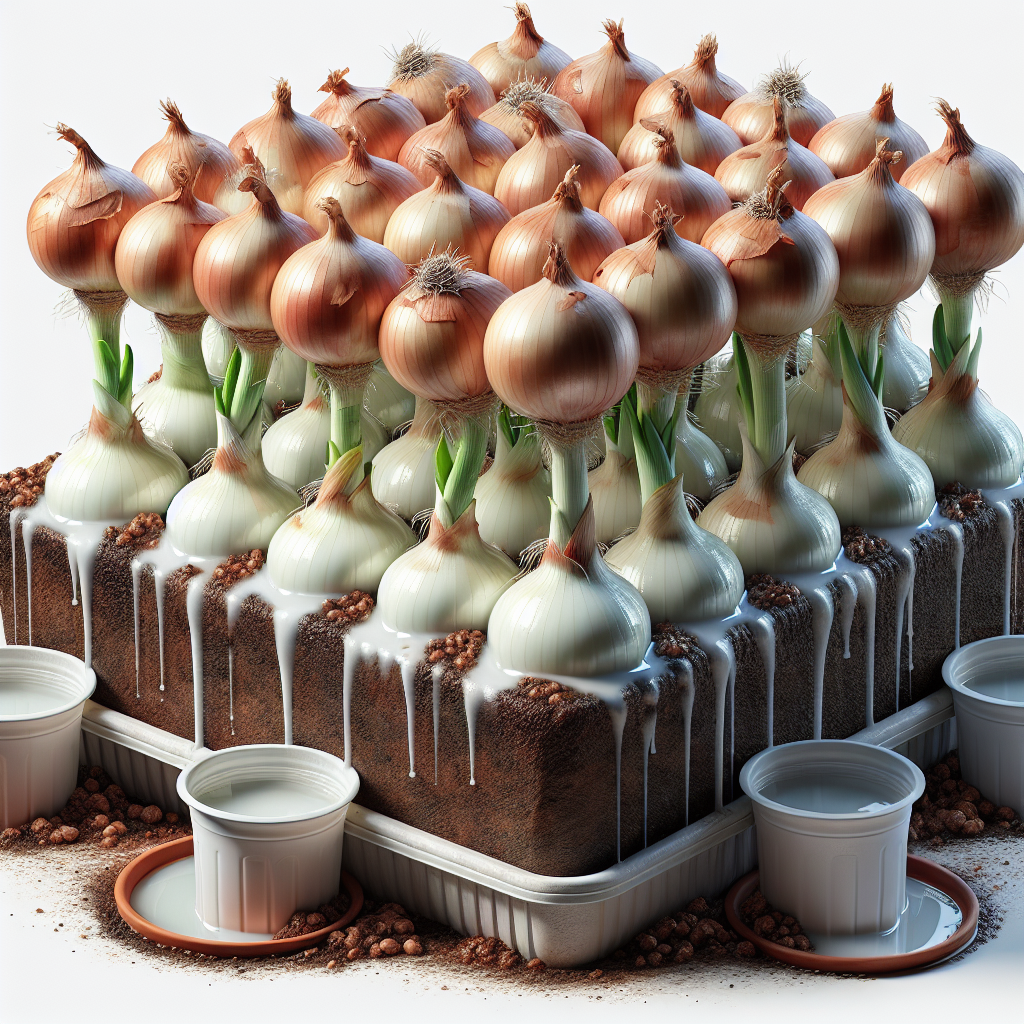Onions are a versatile and widely used vegetable in cooking, but they can be a bit finicky when it comes to their growing conditions. One common mistake that many gardeners make when growing onions in containers is overwatering. Overwatering can lead to root rot, stunted growth, and poor bulb development. In this article, we will discuss how to protect onion plants from overwatering in containers.
1. Choose the right container: When growing onions in containers, it is important to choose the right size container. Onions have shallow root systems, so a container that is at least 6-8 inches deep should be sufficient. Make sure the container has adequate drainage holes to prevent water from pooling at the bottom.
2. Use well-draining soil: The soil you use for your onion plants should be well-draining to prevent waterlogged conditions. A good quality potting mix that contains perlite or vermiculite will help promote good drainage.
3. Watering frequency: Onions like consistent moisture, but they do not like to sit in waterlogged soil. It is important to monitor the moisture levels in the soil and water only when the top inch of soil feels dry to the touch. Overwatering can suffocate the roots and lead to root rot.
4. Mulch: Adding a layer of mulch around your onion plants can help retain moisture in the soil and reduce evaporation. This will help regulate moisture levels and prevent overwatering.
5. Proper drainage: Proper drainage is crucial for preventing overwatering in container-grown onion plants. Make sure there are adequate drainage holes in the bottom of the container and that excess water can freely flow out.
6. Monitor weather conditions: Weather conditions such as heavy rainfall or high humidity can contribute to overwatering issues with container-grown onion plants. Be mindful of these factors and adjust your watering schedule accordingly.
7. Avoid overhead watering: When watering your onion plants, try to avoid getting water on the foliage as this can promote disease and rot issues. Instead, water at the base of the plant using a drip irrigation system or a watering can.
8. Fertilize sparingly: Overfertilizing can lead to excessive growth and increased water requirements, which can contribute to overwatering issues. Use a balanced fertilizer sparingly throughout the growing season.
9. Monitor plant health: Regularly inspect your onion plants for signs of stress such as yellowing leaves or wilting foliage, which could indicate overwatering issues. Adjust your watering practices accordingly if you notice any problems.
10. Harvest on time: Harvesting your onions at the right time can also help prevent overwatering issues as mature onions require less water compared to younger plants.
In conclusion, protecting onion plants from overwatering in containers involves choosing the right container size, using well-draining soil, monitoring watering frequency, proper drainage, mulching, monitoring weather conditions, avoiding overhead watering, fertilizing sparingly, monitoring plant health and harvesting on time.
By following these tips and maintaining proper care practices for your onion plants, you can help prevent overwatering issues and promote healthy growth and development throughout the growing season.
Hopefully you found this article informative and helpful! Happy gardening!













